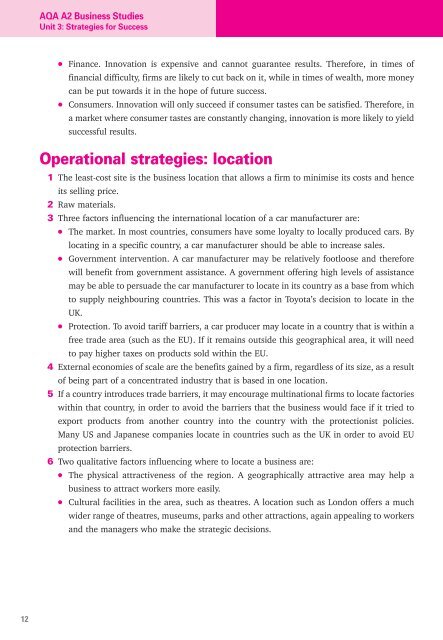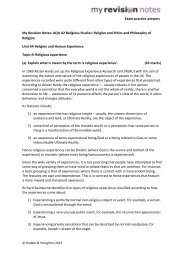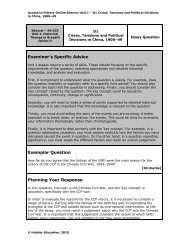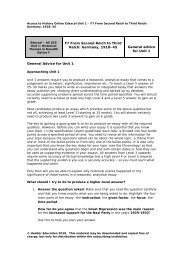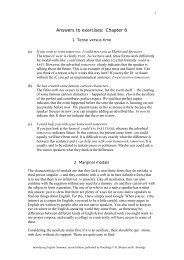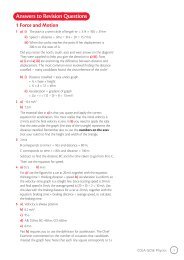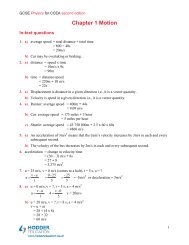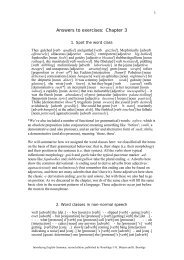A2 Business Studies Unit 3 Strategies for Success AQA
A2 Business Studies Unit 3 Strategies for Success AQA
A2 Business Studies Unit 3 Strategies for Success AQA
- No tags were found...
Create successful ePaper yourself
Turn your PDF publications into a flip-book with our unique Google optimized e-Paper software.
<strong>AQA</strong> <strong>A2</strong> <strong>Business</strong> <strong>Studies</strong><strong>Unit</strong> 3: <strong>Strategies</strong> <strong>for</strong> <strong>Success</strong>● Finance. Innovation is expensive and cannot guarantee results. There<strong>for</strong>e, in times offinancial difficulty, firms are likely to cut back on it, while in times of wealth, more moneycan be put towards it in the hope of future success.● Consumers. Innovation will only succeed if consumer tastes can be satisfied. There<strong>for</strong>e, ina market where consumer tastes are constantly changing, innovation is more likely to yieldsuccessful results.Operational strategies: location1 The least-cost site is the business location that allows a firm to minimise its costs and henceits selling price.2 Raw materials.3 Three factors influencing the international location of a car manufacturer are:● The market. In most countries, consumers have some loyalty to locally produced cars. Bylocating in a specific country, a car manufacturer should be able to increase sales.● Government intervention. A car manufacturer may be relatively footloose and there<strong>for</strong>ewill benefit from government assistance. A government offering high levels of assistancemay be able to persuade the car manufacturer to locate in its country as a base from whichto supply neighbouring countries. This was a factor in Toyota’s decision to locate in theUK.● Protection. To avoid tariff barriers, a car producer may locate in a country that is within afree trade area (such as the EU). If it remains outside this geographical area, it will needto pay higher taxes on products sold within the EU.4 External economies of scale are the benefits gained by a firm, regardless of its size, as a resultof being part of a concentrated industry that is based in one location.5 If a country introduces trade barriers, it may encourage multinational firms to locate factorieswithin that country, in order to avoid the barriers that the business would face if it tried toexport products from another country into the country with the protectionist policies.Many US and Japanese companies locate in countries such as the UK in order to avoid EUprotection barriers.6 Two qualitative factors influencing where to locate a business are:● The physical attractiveness of the region. A geographically attractive area may help abusiness to attract workers more easily.● Cultural facilities in the area, such as theatres. A location such as London offers a muchwider range of theatres, museums, parks and other attractions, again appealing to workersand the managers who make the strategic decisions.12


